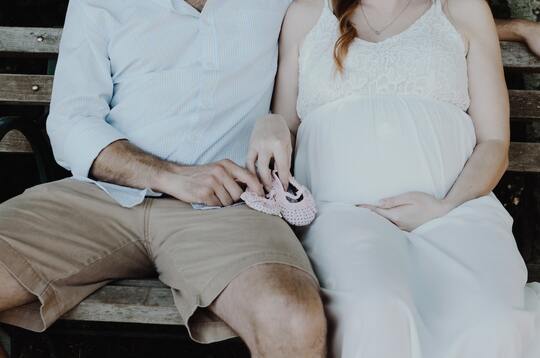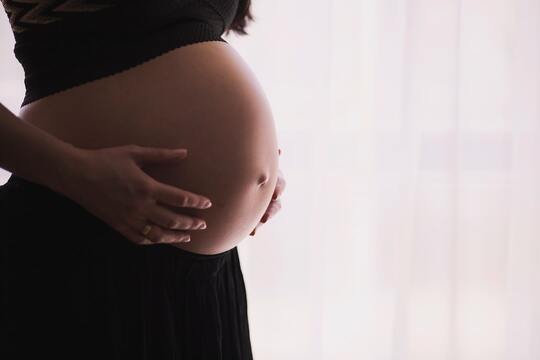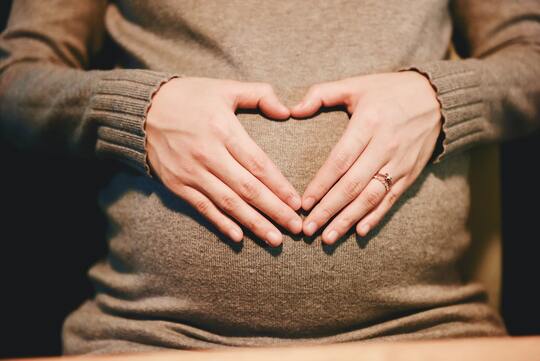If you’re trying to conceive, you may be wondering if your caffeine intake could affect your fertility. The role of caffeine in fertility has been a subject of interest for many couples who are trying to get pregnant. Lets explore does drinking coffee prevent pregnancy ?
Caffeine impact in Fertility:

Female Fertility:
Ovulatory Disorders: High caffeine intake (more than 500 mg/day or about 5 cups of coffee) may be associated with an increased risk of ovulatory disorders, which can potentially affect fertility.
Miscarriage:
High levels of caffeine consumption during early pregnancy might be linked to an increased risk of miscarriage. Nevertheless, the results are mixed, and more definitive conclusions require further study.
Time to Conception:
Some studies have suggested that high caffeine intake might be linked to longer time to conception, but this evidence is not consistent across all studies.
IVF Outcomes:
Some research has indicated that high caffeine consumption might negatively impact in vitro fertilization (IVF) outcomes, but again, results vary.
Male Fertility:
Sperm Quality:
Several studies have looked at the relationship between caffeine intake and sperm quality. Results are mixed, with some studies suggesting a possible negative impact of high caffeine intake on sperm quality.
Testosterone Levels:
Caffeine can stimulate the adrenal glands, which in turn can increase the production of certain hormones. The direct effect of caffeine on testosterone levels and its implication for male fertility isn’t entirely clear.
General Considerations:
Amount of Consumption: Many studies differentiate between moderate and high caffeine consumption. Moderate consumption (typically defined as 200-300 mg/day or about 2-3 cups of coffee) generally poses minimal risk.
Source of Caffeine:
Not all caffeine sources are the same. For instance, caffeine from coffee might have different effects than caffeine from sodas or energy drinks due to other compounds in these beverages.
Recommendations:
Due to the mixed evidence and potential risks associated with high caffeine intake, many fertility specialists recommend that those trying to conceive limit their caffeine intake. A common recommendation is to keep it under 200-300 mg/day (roughly the amount in 2-3 cups of coffee).
Limitations:
Many of the studies on caffeine and fertility are observational, which means they can show associations but not causation. Other factors, like overall diet, lifestyle, or underlying health conditions, might confound the relationship between caffeine and fertility.
while the occasional cup of coffee or tea is unlikely to have a significant effect on fertility for most people, it’s a good idea for those actively trying to conceive to be mindful of their caffeine intake. Always consult with a healthcare professional or fertility specialist about any concerns related to diet and fertility.
Caffeine Intake and Fertility
Understanding the Amount of Caffeine in Coffee
When it comes to understanding the potential effects of caffeine on fertility, First explore the amount of caffeine present in coffee. Coffee is one of the most popular sources of caffeine, with a typical cup containing around 95 milligrams of caffeine.
The exact amount can vary depending on factors such as the type of coffee bean, the brewing method, and the serving size. It is worth noting that other beverages and foods can also contribute to daily caffeine intake, such as energy drinks and soft drinks.
The Potential Effects of Caffeine on Fertility
Excessive caffeine consumption may have an impact on both male and female fertility. For women, high levels of caffeine intake have been associated with a higher risk of infertility.
Studies have shown that caffeine can interfere with ovulation, potentially disrupting the delicate hormonal balance needed for successful conception. High caffeine consumption has been linked to an increased risk of miscarriage in early pregnancy.

When it comes to male fertility, caffeine intake can also play a role. Excessive caffeine consumption can lower sperm count and motility, making it more challenging for couples to conceive. Therefore, it is important for both men and women who are trying to get pregnant to be mindful of their caffeine intake and its potential impact on fertility.
Expert Opinions on Caffeine and Fertility Insights from the Mayo Clinic
The Mayo Clinic, a renowned medical institution, has provided valuable insights into the relationship between caffeine and fertility. According to their recommendations, individuals who are trying to conceive should consider limiting their caffeine intake. While there is no specific guideline, it is suggested that keeping daily caffeine consumption below 200 milligrams may be beneficial for fertility.

Other Studies on the Relationship between Caffeine and Fertility
Various other studies have further explored the link between caffeine and fertility. A meta-analysis published in the British Journal of Pharmacology found that excessive caffeine intake could increase the risk of fertility problems. This analysis looked at multiple studies and concluded that higher caffeine consumption was associated with a higher risk of infertility. It is worth noting that more research is needed to fully understand the causal relationship between caffeine and fertility.
while caffeine is a widely consumed stimulant, its potential effects on fertility should not be overlooked. Both male and female fertility can be affected by excessive caffeine intake. Therefore, individuals who are trying to conceive should be mindful of their caffeine consumption and consider discussing it with their healthcare providers. Ultimately, making informed choices about caffeine intake may help improve chances of successful conception.
Lifestyle Choices and Fertility
When it comes to fertility, lifestyle choices play a significant role. One lifestyle choice that has been a subject of interest is coffee intake. It is important to understand the impact of caffeine consumption on fertility and how it affects both men and women trying to conceive.
The Importance of Coffee Intake Moderation
Coffee, being one of the most popular sources of caffeine, has been linked to fertility problems. Studies have shown that high levels of caffeine intake can disrupt ovulation and hormonal balance in women. This interference can make it more difficult for women to conceive. Excessive caffeine consumption has also been associated with an increased risk of miscarriage in early pregnancy.
Other Factors that Affect Fertility
While caffeine intake can affect fertility, it is not the only factor to consider. Other lifestyle choices, like smoking, alcohol consumption, and poor diet, can also have a negative impact on fertility. It is important for individuals trying to conceive to address these factors as well and create a balanced lifestyle for optimal fertility.
Creating a Balanced Lifestyle for Optimal Fertility
Creating a balanced lifestyle is crucial for both men and women who are trying to conceive. This includes eating a healthy diet, exercising regularly, managing stress levels, and avoiding harmful substances like cigarettes and excessive alcohol. By adopting these lifestyle changes, couples can increase their chances of successful conception and improve overall fertility.
Q: Can drinking coffee impact your ability to conceive?
A: Yes, studies have found a link between caffeine consumption and female fertility.
Q: How much caffeine is considered safe for fertility?
A: The amount of caffeine that affects fertility is still debated, but many experts recommend limiting your intake to 200-300 mg of caffeine per day.
Q: How many cups of coffee per day is safe for fertility?
A: It is generally recommended to consume no more than 1-2 cups of coffee per day if you’re trying to conceive.
Q: Does caffeine affect male fertility?
A: Some studies have found that high doses of caffeine may have a negative impact on sperm quality and male fertility.
Q: Do lifestyle choices count in terms of fertility?
A: Yes, lifestyle choices, including caffeine consumption, can affect a woman’s ability to conceive.
Q: Can drinking decaf coffee affect fertility?
A: Decaf coffee still contains a small amount of caffeine, but it is generally considered safe to consume in moderate amounts.
Q: How many 8-ounce cups of coffee per day is safe for fertility?
A: It is recommended to limit your intake to 1-2 cups of coffee per day if you’re trying to conceive.


Leave a Reply